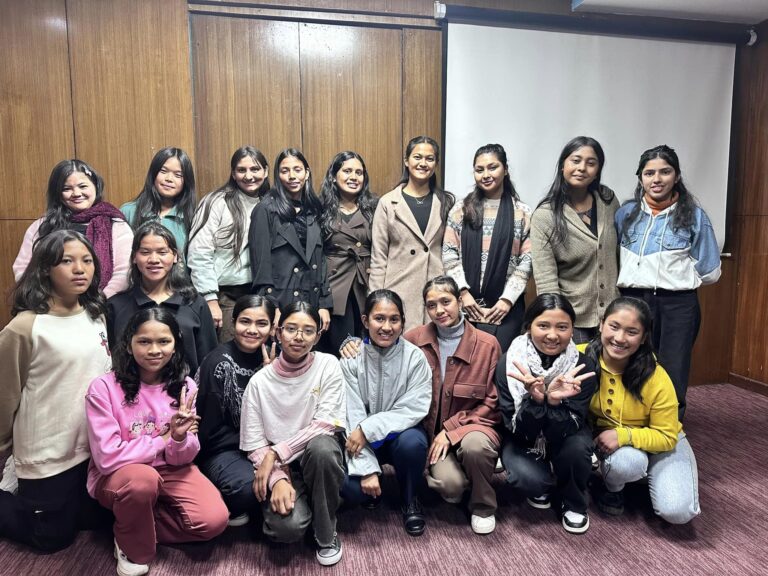Consultations with Girls group (Girls Education, Engagement and Empowerment)

The Constitution of Nepal has recognized child participation as one of the fundamental rights. Further, the children’s act 2075 has incorporated children’s right to participation but government still lack the clear roadmap for how to put it into action. Encouraging girl participation promotes gender equality as well as ensures the opportunities and resources are distributed fairly among all individuals. Girl participation empowers them by building confidence, self-esteem, and sense of agency. Providing opportunities for girls engage in different activities helps break down traditional gender roles and stereotypes, allowing them to peruse their interests and aspirations. Engaging girls in various activities contributes to the overall development of societies. When girls are educated, involved in decision making processes, and participate in the workforce, it has a positive impact on economic development and social progress.
In this regards Consortium Nepal is initiating the process for the series of consultations with different groups including policy makers. In this connection Consortium Nepal with the support of GSIF conducted consultations with girls group on 17th January 2024. The main objective of discussion was to discuss about how girls are engaging in planning process. It aims to identify the real need of the girl to raise their voice. Discussion helps to prepare plan and policy paper in the basis of actual needs of girls. There were 19 girls participants during the consultation. During the consultations the problem, solution and bridge role in engagement process was discussed by girls themselves. Girls from different child club, girl’s network as well as National Child Advocates Council member made their active participation during the discussion. Problems like Lack of inclusion of girls in decision making process, girls denied from love and care from family, discriminatory behavior to girl child, early marriage to reduce family burden, girls trafficking, work pressure, girls labor, lack of meaningful participation of girls in local level planning process school dropout, sexual harassment are the major problems highlighted by the participants during the discussion. Further, to make the proper betterment of every girl government should should play active roles to formulate plan and policies regarding to girls empowerment, education and engagement. Similarly, Family support is very important to increase girls participation in every sectors. Likewise, establishment of girls friendly schools and community to raise the voice against violation of girls rights. It is important to formulation and mobilization of child club networks to raise the issues of girls participation. In conclusion, consultations with girls group provides a detailed review of the sessions, significant takeaways, and potential next steps in further future. The identification of problems that girls having in their engagement throughout the consultations helps to promote inclusivity, building confidence, and addressing specific concerns are the areas that we can collectively work on further. The collective voices make positive impact in formulation of policies paper with regards to girl education, engagement and empowerment.